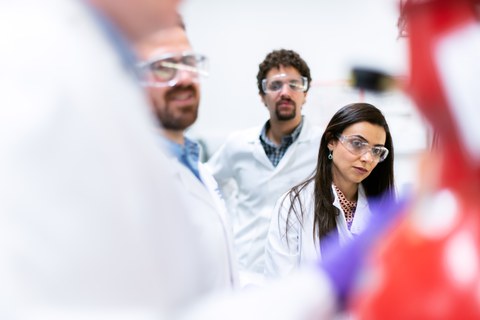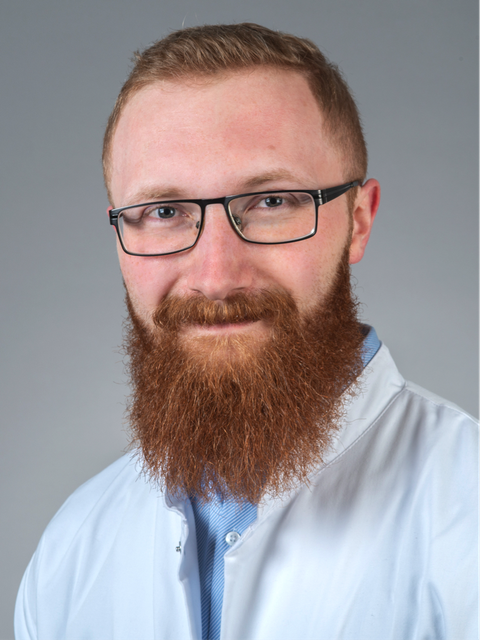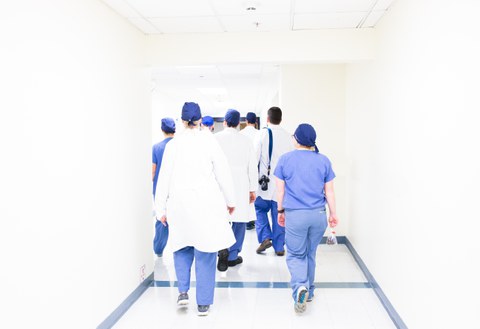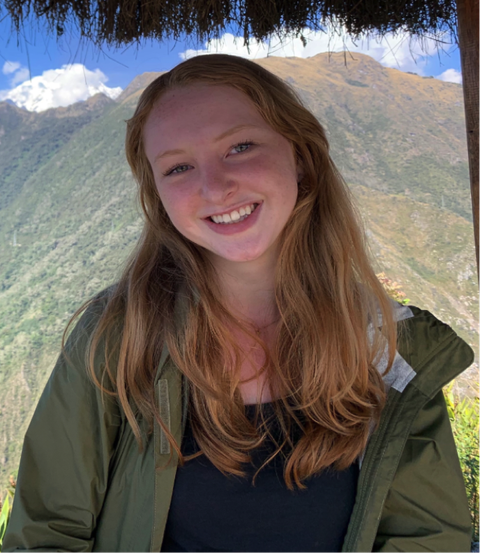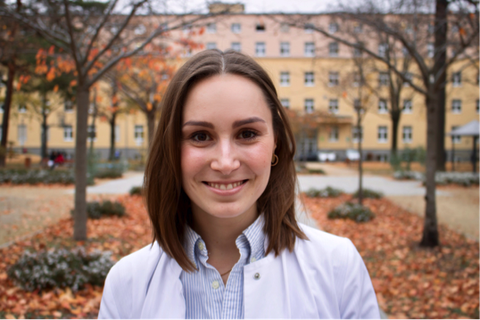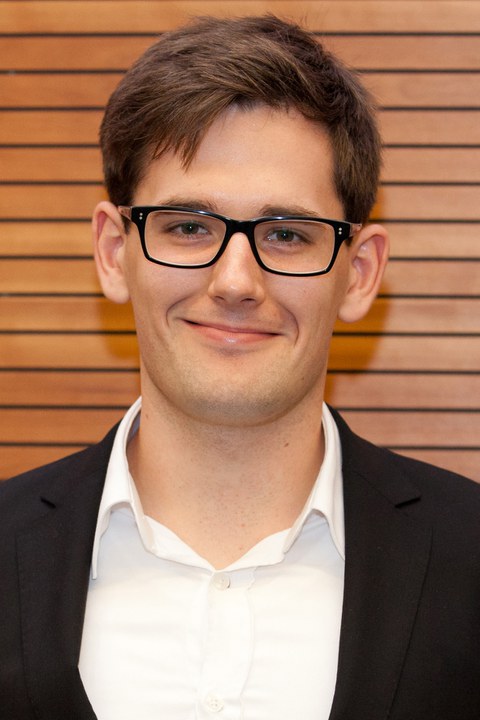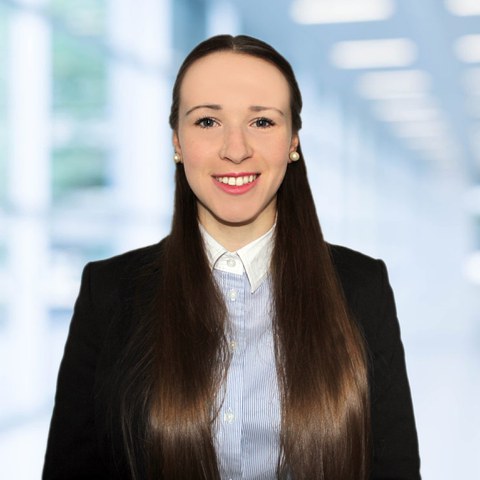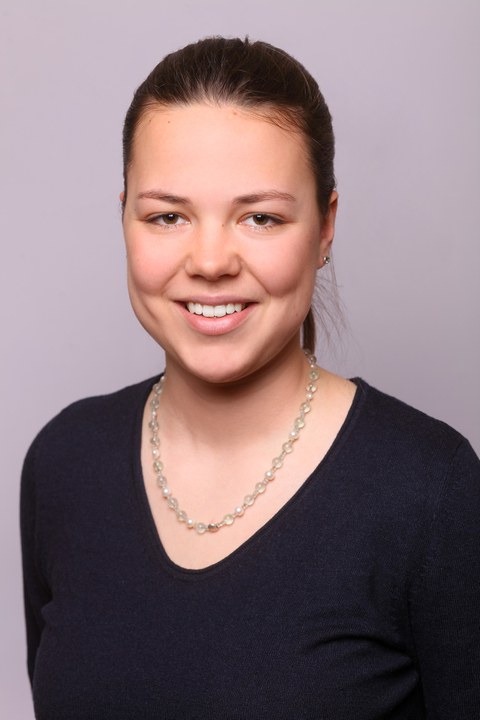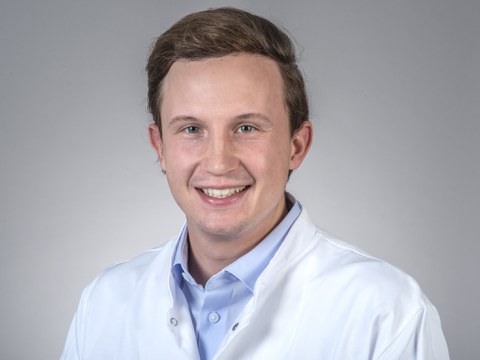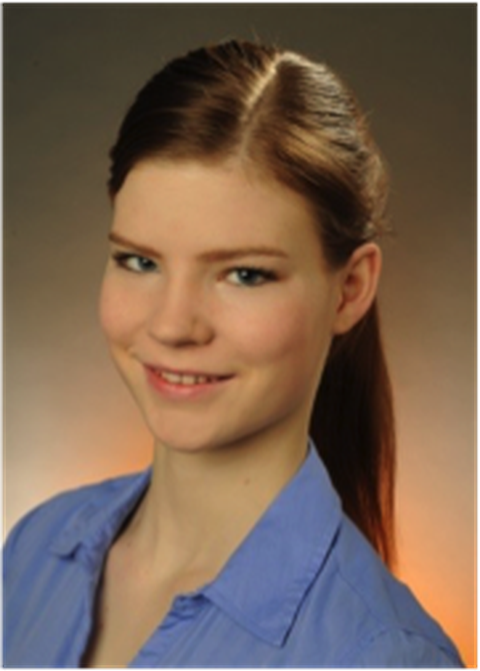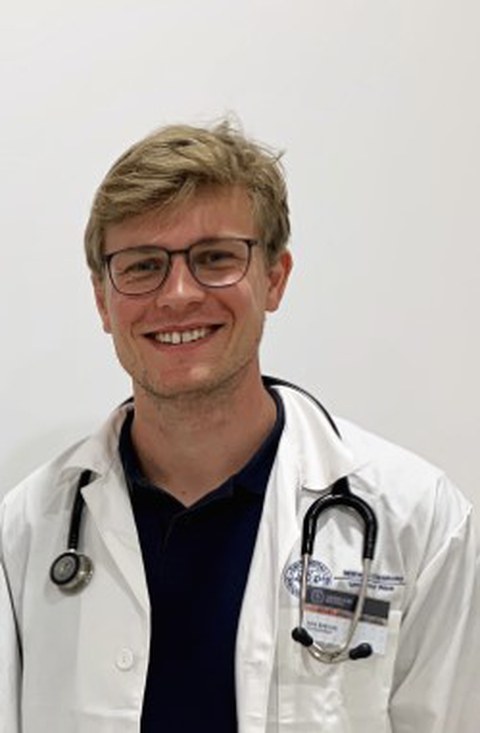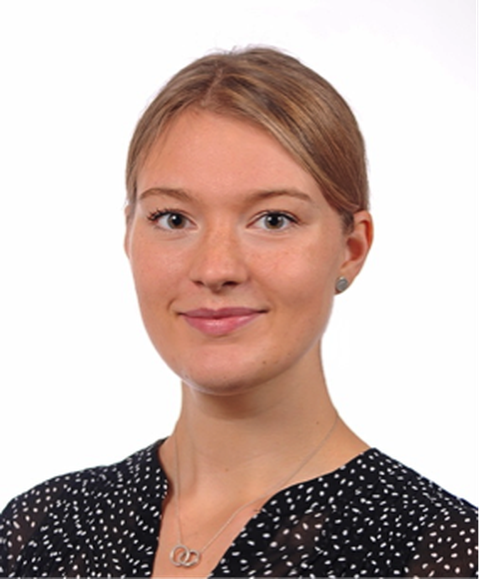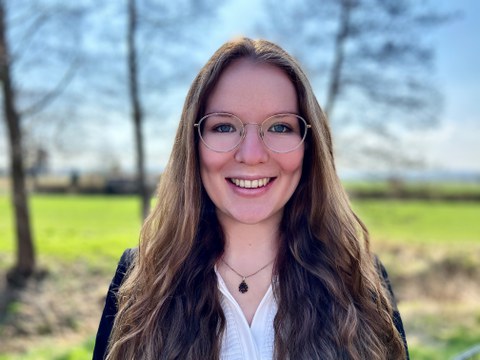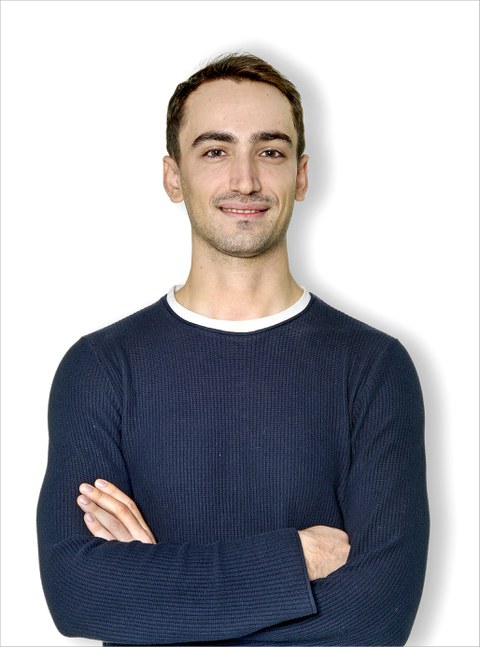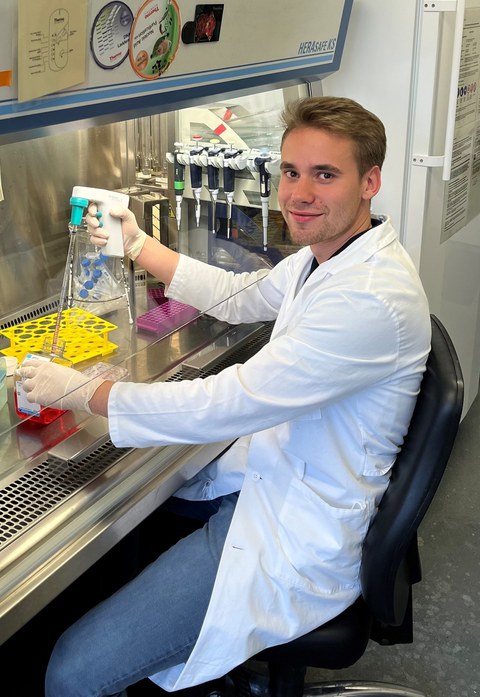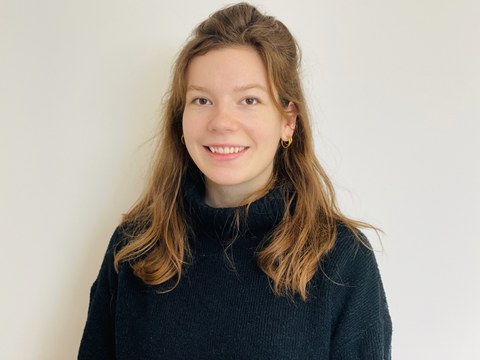Supporting Clinician Scientists on their way
Combining clinical activity and research is a balancing act and often only possible by protected research periods. In addition to the existing programs at the Faculty of Medicine Carl Gustav Carus, the MSNZ Clinical Fellowships offer a complementary funding scheme. Clinicians of all career stages are supported by protected research leaves for 6-12 months: during their studies, during their residency or on their way to habilitation. In addition, the MSNZ promotes medical doctorates in close collaboration with the Carus-Promotionskolleg.
Which projects the aspiring Clincian Scientists use their fellowships for, where does their research focus lie or where do they see themselves in five years on their career path? The following portraits of our Clinical Fellowships and doctorates will let you know.
Clinical Fellowships
Jan-Niklas studied medicine at the Georg-August University in Göttingen. During his dissertation at the Max-Planck-Institute for Experimental Medicine he focused on tumor microenvironment using organoid models and intravital molecular imaging. 2018, Jan started his residency in hematology and oncology at the University Hospital Carl Gustav Carus in Dresden. Last year he started working at the Big Data and Artificial Intelligence in Hematology group at the Medical Clinic 1.
| Research project | Deep Learning guided diagnostics in myelodysplastic syndromes |
| Research focus | #hematology #machinelearning #leukemia |
| Research aims | My goal is to use machine learning to aid clinicians in the diagnostic pathway of acute leukemias and improve risk stratification models with a data-driven precision medicine approach. |
| Links, Record and Social Media | |
| Contact |
Medizinische Klinik und Poliklinik I Fetscherstrasse 74 01307 Dresden,Deutschland Group Big Data and Artificial Intelligence in Hematology |
How do you see yourself in 5 years looking back to the experience of the MSNZ clinical fellowship? "The interdisciplinarity and interconnectedness of the MSNZ allows researchers to find common goals and interests and collaborate across fields. The support of the MSNZ enables me to focus both on my research and continue my residency with great diligence."
Sofia Kolovich completed her Bachelor of Science in Health Sciences at the Ohio State University in 2021. Sofia is joining the "Non-coding RNAs in cancer" group at the National Center for Tumor diseases Dresden for a one-year post-baccalaureate clinical fellowship program.
| Research project | „The Biological and Clinical Impact of Circular RNAs in AML” |
| Research focus | #oncology #hematology #non-coding RNAs |
| Research aims | My aim is to study the mechanisms that lead to the development of leukemia in order to develop better treatments for patients. Specifically, I will pursue discovering the importance of circular RNAs in patients with acute myeloid leukemia. |
| Links, Record and Social Media | |
| Contact |
Translationale Medizinische Onkologie, NCT Neubau 002, Mildred-Scheel Straße 136, 01307 Dresden Group Non-coding RNAs in cancer |
How do you see yourself in 5 years looking back to the experience of the MSNZ clinical fellowship? "In 5 years, I hope to have learned a lot of new information about leukemia and developed the field of oncology with my research project. I also hope to be attending medical school to realize my dream of being a physician."
Romy Riffel initially received training as a technical assistant for medical research. Subsequently, she studied medicine at the TU Dresden. 2016 Romy started her MD thesis at the Bone Lab Dresden. In 2019 she started her residency at the Medical Department III at the Universitätsklinikum Dresden.
| Research project | „Antitumor effects of a dual inhibition of Rac1 and the mevalonate pathway” |
| Research focus | #breastcancer #bonemetastases #celldeath |
| Research aims | I aim to discover new antitumor effects in bone seeking cancer cells by asessing the potential of Rac1 inhibition and concomitant targeting of the mevalonate pathway to identify new therapeutic targets in human malignancies. |
| Links, Record and Social Media | |
| Contact |
Bone Lab Dresden Medizinische Klinik und Poliklinik III Fetscherstrasse 74 01307 Dresden,Deutschland Group Cancer and Bone |
How do you see yourself in 5 years looking back to the experience of the MSNZ clinical fellowship? "In 5 years, I want to be a junior group leader to further advance oncological research. The MSNZ clinical fellowship worked as a cornerstone for my career as a clinician scientist and gave me the opportunity to transfer knowledge from bench to bedside."
Julien Subburayalu studied Medicine in Essen and London. In his medical dissertation he investigated several aspects of the adaptive immune system in the context of kidney transplantation at the University of Duisburg-Essen. Currently, he works towards his Ph.D., funded by the ‘Studienstiftung des deutschen Volkes’ and AstraZeneca, on programmed cell death in innate immune cells at the University of Cambridge. Julien will start his residency at the Medical Clinic 1 at the University hospital in summer, while focussing on the application of macrophages as cancer treatment in the group of Michael Sieweke at CRTD Dresden.
| Research project | In vitro genome-modified macrophages as precision medicine against solid malignancies |
| Research focus | #CellularTherapies #Immunmodulation |
| Research aims |
I endeavour to understand the consequences of genomic modifications for the utilization of macrophages as cellular therapies against solid malignancies and its by proxy effects imposed on the tumour microenvironment. |
| Links, Record and Social Media | |
| Contact |
Sieweke Group, Center for Regenerative Therapies, TU Dresden, Fetscherstr. 105, 01307 Dresden Group Stem Cell and Macrophage Biology |
How do you see yourself in 5 years looking back to the experience of the MSNZ clinical fellowship? "I am very passionate about being able to work at the interface of adaptive and innate immunity. Having been offered to join this exciting project in the Sieweke group, I hope to contribute my part in the pursuit of identifying novel ways to oppose solid tumour entities using lowly adverse cellular ‘high-precision’ therapies."
Yana Vassileva studied human medicine at the TU Dresden and worked as a physician in Switzerland and Germany for two years. Researching novel biomarkers for ovarian cancer as part of her medical dissertation showed her the importance and power of computational methods for understanding the aetiology of cancer. She is currently studying "Computational Modeling and Simulation" at TU Dresden and is a member of the research group Biomedical Genomics, led by Dr. Anna Poetsch at BIOTEC and NCT Dresden.
| Research project |
Prediction of cancer immunotherapy response based on extraction of mutagenic processes |
| Research focus | #ComputationalGenomics #Cancer #AI in Medicine |
| Research aims | Gaining insights into the connection between mutagenesis and response to immunotherapy in a heterogeneous group of young patients or patients with rare cancers using machine learning algorithms. |
| Links, Record and Social Media | |
| Contact |
Group Biomedical Genomics BIOTEC, TU Dresden Tatzberg 47/49 01307 Dresden |
How do you see yourself in 5 years looking back to the experience of the MSNZ clinical fellowship? "The MSNZ clinical fellowship offers an excellent opportunity for physicians or medical students to dedicate themselves to research. This is particularly important, as establishing a strong collaboration between physicians and scientists is the most efficient way to advance personalised medicine."
Alicia Beier is a medical student at the TU Dresden. As part of her MD- thesis she works at the research laboratory of the Department of Urology on new therapies for prostate cancer since August 2020.
| Research project |
Influence of glutamine on the therapy of docetaxel-resistant prostate cancer cells |
| Research focus | #oncology #prostatecancer #drugresistance |
| Research aims | With my project I would like to investigate an alternative treatment option for docetaxcel-resistant prostate carcinoma. Specifically, I will examine the influence of glutamine in a cell line model. |
| Links | |
| Contact |
University Hospital Carl Gustav Carus Haus 28, 2. OG R. 313 |
How do you see yourself in 5 years looking back to the experience of the MSNZ clinical fellowship? "Thanks to the MSNZ Clinical Fellowship, I can fully concentrate on my research project and hope to contribute to the development of alternative therapies for prostate cancer. Collaborations within the framework of the interdisciplinary MSNZ network, might help me to remain involved in clinical research on the long run. "
Marlena Hesse has been studying medicine at the TU Dresden since 2020. She completed the preclinical part in Hungary at the University of Pécs. Since October 2021, Marlena has been working on her doctorate at the urological department.
| Research project | Investigation of the effect of type I and type III interferons (IFN) on urinary bladder and prostate carcinoma cell lines (BCa and PCa) over time |
| Research focus | #oncology #immunotherapy #bladdercancer |
| Research aims | The aim of my project is to investigate an alternative treatment option for bladder and prostate cancer that has fewer systemic side effects. I am focusing on the effect of type I and especially type III interferons. |
| Contact |
Urologisches Forschungslabor Universitätsklinikum Carl Gustav Carus Dresden Fetscherstr. 74, 01307 Dresden Haus 25, 2. OG, R320 |
How do you see yourself in 5 years looking back to the experience of the MSNZ clinical fellowship? "Thanks to the MSNZ Clinical Fellowship, I am able to put my complete focus on research and already gain valuable scientific experience. In doing so, it is important for me to build up a skillset for my upcoming time as Clincian Scientist."
Martin Schneider studied medicine at the University of Erlangen-Nurnberg with a preclinical semester abroad at the University of Manitoba in Canada and a clinical study visit at the University of Melbourne in Australia. His dissertation focused on the mechanism of immunotherapy in the context of inflammatory disease both in vitro and in vivo. After starting his residency in internal medicine, hematology and oncology at the University Hospital Erlangen in 2018, he moved to the Medical Clinic I at the University Hospital Dresden in 2022 to advance new methods in the field of hematology in the research group "Big Data and Artificial Intelligence in Hematology".
| Research project | Development of ML-based approaches to improve classification and response prediction of hematologic diseases |
| Research focus | #AI #hematology |
| Research aims | Using artificial intelligence, I work on data-driven optimization in the area of diagnostics, risk stratification and therapy in patients with malignant hematologic diseases. |
| Contact |
Group „Big Data and Artificial Intelligence in Hematology“Medizinische Klinik und Poliklinik I Fetscherstrasse 74 01307 Dresden |
How do you see yourself in 5 years looking back to the experience of the MSNZ clinical fellowship? "Through the MSNZ Clinical Fellowship, I was able to do scientific work alongside my residency training to establish novel approaches in diagnostics and therapy for malignant hematologic diseases."
Promotionsförderung
Noemi Balbi completed her bachelor's degree in biology focussing on immunology at Freie Universität Berlin in 2016. She then began her medical studies at the Medical and Pharmaceutical University Iuliu Hațieganu in Romania, which she has been continuing at the Technische Unversität Dresden since May 2020. Noemi has been working on her doctorate since October 2020 in the Seifert Lab at the Clinic for Visceral, Thoracic and Vascular Surgery at the University Hospital Carl Gustav Carus Dresden.
| Research project | The role of the inhibitory receptor LAG3 in pancreatic ductal adenocarcinoma |
| Research focus | #tumor immunology #gastrointestinalcancer #TcellImmunobiology |
| Research aims | The goal of my research is to use the body's own immune system for personalized cancer therapy in order to provide better patient care. |
| Links | |
| Contact |
Chirurgisches Forschungslabor Group Tumor immunology |
How do you see yourself in 5 years looking back to the experience of the MSNZ clinical fellowship? "Through application-oriented research, I hope to contribute to new therapeutic methods in cancer medicine. The interdisciplinary networking and exchange through the MSNZ has been a valuable experience for my professional and personal development."
Pia Michler is a medical student at the Technische Universität Dresden. In August 2020 she has startet her experimental doctorate at the Department of Pediatric Oncology with Prof. Julia Hauer.
| Research project | Functional significance of a germline mutation in the shelterin complex gene POT1 for the development of childhood acute myeloid leukemia |
| Research focus | #PediatricOncology #GeneticPredisposition |
| Research aims | I would like to investigate the genetic predisposition for the development of acute myeloid leukemias in childhood based on a germline mutation in the gene POT1. |
| Links | |
| Contact |
AG Hauer, Pädiatrische Onkologie Klinik und Poliklinik für Kinder- und Jugendmedizin, Universitätsklinikum Carl Gustav Carus Dresden, Haus 31, 1.OG; Büro: R.227, Labor: R.228 Fetscherstrasse 74, 01307 Dresden Group Genetic Predisposition |
How do you see yourself in 5 years looking back to the experience of the MSNZ clinical fellowship? "In 5 years, I see myself as a resident in pediatrics. I understand research as part of my medical education and training in addition to my clinical work, I was able to gain valuable scientific experience during my medical doctorate. I would like to implement the the gained insights into the clinical care of patients in my further professional life."
Nils Rheude is studying medicine at TUD since 2020. He accomplished his preclinical part in hungary at the University Pécs. For his experimental doctoral thesis he is now going to find new target genes for cancer immunotherapy at the Buchholz lab at Biotec Dresden in collaboration with the HZDR and MSNZ group Arndt/Fasslrinner.
| Research project |
CRISPR screening on target genes that sensitize AML cells to UniCAR-T-Cell therapy |
| Research focus |
#CRISPR/Cas #Cancer #Immunotherapy |
| Research aims | The goal of my research is to identify potential target genes that have an impact on the therapeutic response of UniCAR-T-Cells and further allow the development of pharmacological targets. |
| Links | Buchholz lab, Arndt/Fasslrinner lab |
| Contact |
BIOTEC Group Medical Systems Biology Phone +49(0)351/463-40286 |
How do you see yourself in 5 years looking back to the experience of the MSNZ clinical fellowship? "In 5 years I want to be doing my residency as an internist.Thereby Iwould like to implement the aquired knowledge of genome surgery and immunotherapy into my clinical practice. It drives me to contribute to modern cancer research."
Max Iltzsche is a medical student at the TUD. Starting as off October 2021 he does his experimental doctoral thesis in the Urology Lab on the induction of interferons during immunotherapy in bladder and prostate cancer.
| Research project | Investigation of the induction of interferons by immunotherapy of bladder and prostate carcinoma. |
| Research focus | #oncology #bladdercancer #immunotherapy |
| Research aims | With my project I would like to investigate an alternative treatment option for bladder and prostatacarcinoma. In doing so, I am exploring the influence of bio-immune conjugates on the antitumor response of cancer cells. |
| Links | Urologisches Forschungslabor |
| Contact |
Universitätsklinikum Carl Gustav Carus Dresden Fetscherstr. 74, 01307 Dresden, Germany Haus 25, 2. OG R. 320 Urologisches Forschungslabor |
How do you see yourself in 5 years looking back to the experience of the MSNZ clinical fellowship? "Thanks to the MSNZ Fellowship, I can put all my energy into my research project and thus lay a foundation for a dual career in clinic and science. This will have enabled me to efficiently bring my knowledge from bench to bedside."
After finishing her premedical studies at the Semmelweis University in Budapest, Hungary, Clara Ortmann continued with the clinical part of medical school at TUD. In October 2021, she started her doctoral thesis in the Tandem Lab Mircetic/Garcia at MSNZ.
| Research project | Delineation of Docetaxel Resistance Marker Genes in Gastric Cancer Using 3D Organoid Culture |
| Research focus | #CRISPR screens #organoids #gastriccancer |
| Research aims | The goal of my research is to identify genetic markers that are responsible for chemotherapy resistance in gastric cancer. |
| Links | Mircetic/Garcia Lab |
| Contact |
Biotechnology Center of the TU Dresden Büro: 1.232 Group Forward genetics in organoid models |
How do you see yourself in 5 years looking back to the experience of the MSNZ clinical fellowship? "In five years, I see myself as a resident in the field of visceral surgery. Building upon the experiences that I gained during my clinical fellowship at MSNZ, I would like to combine my scientific and clinical knowledge for an optimal patient care."
Juliana Schulz is a 4th year medical student at TU Dresden. She completed her preclinical studies at Semmelweis University in Budapest, Hungary. From April 2022 onwards, she will work on her doctoral thesis at the department for Translational Medical Oncology at NCT/UCC Dresden.
| Research project | Combinatorial RAS-MAPK pathway inhibition for functional stratification in precision oncology |
| Research focus | #Funtional precision oncology #Combinatorial therapies, #RAS-MAPK |
| Research aims |
The goal of my research is to develop a systematic combinatorial drug testing in patient cancer models for precision oncology and to identify and target KRAS-MAPK-pathway dependencies and resistance mechanisms with combinatorial inhibition of this pathway. |
| Links | Translational Medical Oncology at NCT/UCC Dresden |
| Contact |
National Center for Tumor Diseases Dresden (NCT/UCC) Department for Translational Medical Oncology Fetscherstraße 74/PF 64 |
How do you see yourself in 5 years looking back to the experience of the MSNZ clinical fellowship? "In 5 years, I see myself as a resident in the field of internal medicine. The MSNZ fellowship enabled me to dedicate myself to translational research during my studies and to contribute to personalized oncology, as well as to gain experience in interdisciplinary cooperation. Together with the acquired scientific skills and experience, this will form the basis for my aspired career as a Clinician Scientist."
Berj Khatchadourian is a medical Student at TUD. For his doctoral thesis in the institute of Clinical Chemistry he will be focusing on cancer metabolism and its involvement in the chemotherapy resistance.
| Research project | Overcoming chemo-resisteance of colorectal tumor by targeting bioenergetics |
| Research focus | #cancermetabolism #oncology #colorectalcancer |
| Research aims |
The goal of my research is to identify the metabolic alterations and the underlying molecular mechanisms associated with development of resistance to Chemotherapy in colorectal Cancer Cell lines and patient derived organoids. |
| Contact |
Institut für Klinische Chemie und Laboratoriumsmedizin Medizinisch-Theoretisches Zentrum (MTZ) Fiedlerstr. 42 D-01307 Dresden |
How do you see yourself in 5 years looking back to the experience of the MSNZ clinical fellowship? "Doctors are in an optimal position to view clinical problems firsthand and apply available science to help address these issues. Researchers can take these problems to the lab and use science to work towards an innovative solution. I want to pursue this path of clinician scientist and contribute to cancer research and therapeutics."
Ferdinand Suttorp completed his preclinical studies at the Medical Faculty of the University of Pécs (Hungary). In 2021, he continued his studies at the TU Dresden in the 5th semester. Since October 2022, Ferdinand has been pursuing his doctoral thesis in the Buchholz Lab.
| Research project | CRISPR-mediated correction of Kras and Trp53 mutations in murine gastric organoids |
| Research focus | #CRISPR_base_editing #cancer_mutations #tumor_organoids |
| Research aims | I am trying to establish an efficient CRISPR-based correction method for the two most common point mutations involved in cancer development in the Trp53 and Kras genes, in the mouse organoid model. This could demonstrate a treatment approach for cancer that eliminates tumors at their root, which is at the DNA level. |
| Links | Buchholz Lab |
| Contact |
University Cancer Center (UCC), Medical Systems Biology Laboratory 1.206 |
How do you see yourself in 5 years looking back to the experience of the MSNZ clinical fellowship? " I am aiming for a residency in an internal medicine. I want to try to apply modern gene therapy to patients. The MSNZ Fellowship provides the foundation to combine scientific work with clinical activity."
Leonie Imberger is a medical student at TU Dresden and Université Aix-Marseille. Starting from October 2022 she is working on her doctoral thesis with the Biomedical Genomics group of Anna Poetsch.
| Research project | Mutations on secondary DNA structures leading to cancer driving activation of oncogenes |
| Research focus | #mutagenesis #non-B-DNA #pediatric brain tumor |
| Research aims |
The aim of my computational project is to systematically characterize mutations on G-quadruplex structures and their potential tumor-driving effect. For this purpose, I am analyzing multi-omics data of cohorts of pediatric brain tumors. |
| Links | Poetsch Lab |
| Contact |
Poetsch Group Biotechnologisches Zentrum Tatzberg 47/49 01307 Dresden |
How do you see yourself in 5 years looking back to the experience of the MSNZ clinical fellowship? "In five years, I will look back to my MSNZ Clinical Fellowship as the unique experience that introduced me to the world of research and scientific practice. Critical thinking skills that I have acquired during this time will be incredibly valuable for both my work as a clinician and for future research projects."

